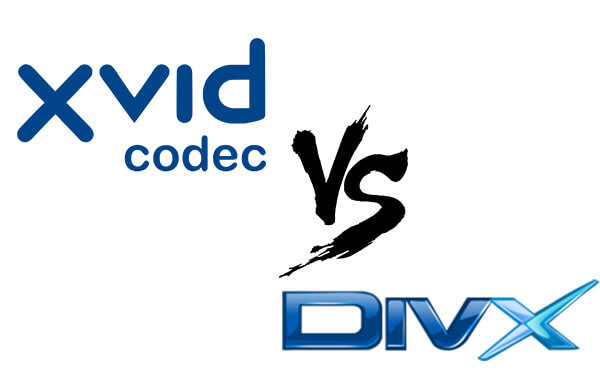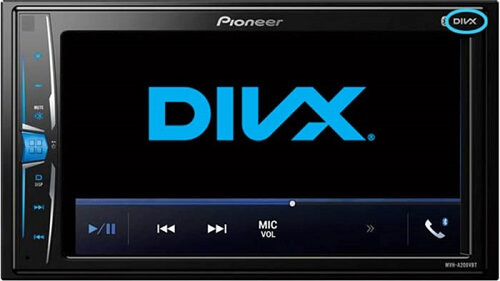
XviD vs DivX? Kind of confusing right? These seemingly random sets of letters are meaningful though. A lot of people are confused with regards to the difference between the two. They’d like to know which is which.
In this article, we’ll tell you more about XviD vs DivX. We’ll explain each of these two to help you gain insight as to which is which. In this way, you’ll learn the XviD vs DivX differences and know how to use the two. Let’s get started.
Contents Guide Part 1. XviD vs DivX: A Detailed ExplanationPart 2. To Wrap It All Up
XviD files actually utilize the Xvid codec. Unlike MP4s, XviD files are not video formats. It’s actually a program that is utilized in order to decompress and compress video to that of MPEG4-ASP (a type of compression standard). This is done in order to save storage space and increase the speeds of the file transfer.

Compression methods supported on that of XviD content allow the entire length of movies to be compressed into CDs while still maintaining DVD quality. There are files that have the file extension.XVID. However, there is a lot of varying file containers that put XviD content into storage.
For instance, depending on the creator, a particular file might have the name videoname.xvid.avi. This particular example is an AVI file. XviDs are actually distributed under the software license GPL that is completely free. It enables compatible devices or operating systems to compile it without placing any limitations.
#1: How Do You Play XviDs?
A lot of modern Blu-ray and DVD players can open and play files that are of XviD. There are players that display the logo for DivX. It is important to note that XviD is different from the DivX codec. However, players that have the DivX logo in it typically are compatible with XviD files.
There are situations wherein the logo is displayed on the website of the device manufacturer. This is, as opposed to the logo being placed on the device itself. Thus, you have to check the website in order to ensure if the player supports XviD files or not.
Now, before we go on with the XviD vs DivX dilemma, we’ll delve into how to play XviD into PCs and Macs. On PCs, software that has the ability to decode videos that are encoded with MPEG-4 ASP is able to play files of the XviD format. For instance, there are popular programs within Windows PCs that can play these file types. These include the ever-popular VLC Media Player. Other notable players include Windows Media Player, DivX Plus Player, MPC-HC, BS Player, and Elmedia Player.
There are a few media players (e.g., VLC Media Player) that have the ability to decode XviD without necessitating the installation of additional software. However, some media players would need the installation of an XviD codec in order to play the content correctly.
iOS devices can play XviDs through the application of OPlayer. Android devices, on the other hand, can play XviDs through the application of RockPlayer. The said application is completely free and works on Android operating systems.
#2: Why Can’t I Play XviD Files?
Is XviD vs DivX on your mind? Let’s talk about the problem of not being able to play XviD files first. If your file cannot be played by VLC Media Player, for instance, it might be possible that you’ve mistaken the file extension for another. There are other file types that use a similar suffix (utilized at the final section of file names). However, these other file types don’t necessarily mean it’s an XviD file.
For instance, the file extension XVD might look very similar to that of XviD. However, this extension is totally different from the latter. The XVD extension, for instance, refers to a file for the virtual disk of Xbox. This is used with the tool “xvdtool.”
Another file type you can mistake for XviD is XVA. This belongs to XenServer. It is, again, not related to that of XviD. However, it shares some letters of the said file extension. For this, you would require the XenServer of Citrix.

DivX is actually a brand name of different products made by DivX, Inc. The said DivX includes the codec which has been made very popular by its capability to compress long videos into tinier bits of sizes without compromising visual quality. The family of DivX includes the players, the codec packs, and the converter. There are two different codecs of DivX as well.
#1: History
Now, to get on with the XviD vs DivX situation, we’ll explain the history of DivX. The codec of DivX was created by numerous hackers. The most notable of them is known as “gej.” The codec was based on the MPEG-4 encoding mechanism of Microsoft’s own version. Typically, the encoders of Microsoft didn’t give users the ability to save streams of MPEG4 into that of the structure format AVI.
Microsoft has forced users to utilize ASF instead. Other limitations of Microsoft’s version were present as well. These different limitations were removed in DivX. The creators of DivX made sure that encoding technology for audio of Windows Media was supported as well. That’s why users were given the ability to add MP3 audio within their own movies.
By 2001, the creators of the hacked codec have then released a legal version of their DivX. This new version can support old movies in DivX. Plus, additional features were added. The new version also has better quality compression compared to the old one.
#2: Uses Of DivX
DivX enables you to put into storage 50 minutes to 120 minutes of video (good quality) into that of a CD that has a size of about 740 MB. Most movies can now be stored within one CD only. There’s a big drawback to using DivX though. Unlike SVCDs or VCDs, DivX cannot be played within most DVD players. DivX can be played within players such as DivX players and those that are compatible with MPEG-4.

In this article, we’ve explained what XviD and DivX are in order to answer the XviD vs DivX dilemma. You have learned what the two actually are. In this way, you can come up with answers about the XviD vs DivX differences. So, what have you learned today? Is there any other notable XviD vs DivX difference? Let us know in the comments section below.
